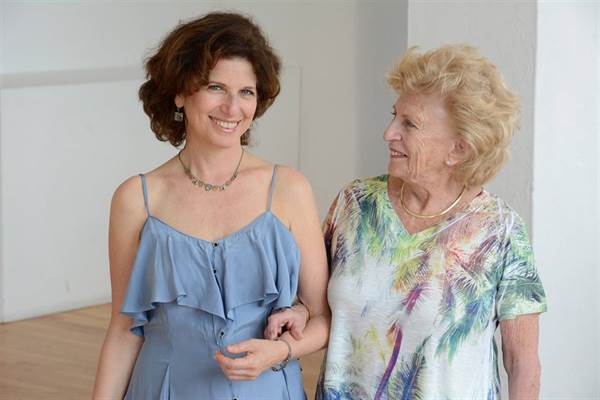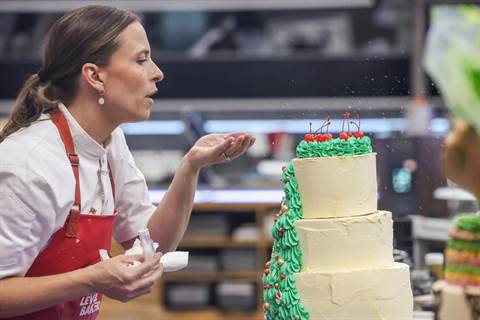
For Gayle Kirschenbaum, that hand dealt a heavy emotional blow. Expecting their third son, Mildred and Gerald were surprised when Gayle was born a female. That was the start of her troubles. A creative and artistic child, she never seemed to fit in with her pragmatic family.
The worst of the criticism came from her Mother. An outspoken, well kept woman, Mildred, seemed to dislike almost everything about Gayle, from her appearance to her personality to her artistic nature. They clashed over just about everything and Gayle carried her Mother's negativity into adulthood.
Look At Us Now, Mother! Is a film about self-exploration and forgiveness, as Gayle tries to put her self in her mother's shoes as a way to connect and forgive the hurt of the past. With interviews from family and friends and home footage, Gayle pieces together a "not the most flattering" image of her mother. And, at times, Mildred does nothing to dispel Gayle's viewpoint.
However, if you can get past some of the harsher things Mildred has said and done, there seems to be a genuinely vulnerable woman underneath. There are moments in the film where we see a different side of Mildred that makes the audience want to simply give her a big hug. The footage in Gayle's apartment, when Mildred states her daughter is making a film to show how horrible a mother she was, is the most emotional and "real" we see Mildred, but footage by Gerald's side after his stroke is warm and touching.
One of the most poignant and insightful portions of the movie is when Mildred takes us around her Boca Raton, FL apartment, pointing out all of Gayle's artwork from when she was young. Here, we see the proud parent gushing over her child's talent, something Mildred seemed to have withheld from Gayle for so many years.
All the while, Gayle seems not unaffected, but forgiving of Mildred's missteps. She accepts her mother's faults and does her best to not let any negativity sidetrack the relationship they have built.
Anyone who has had a tumultuous relationship with their mother can find some connection to Mildred, Gayle and their story. One need not be a Jewish northeasterner to identify with the hurt, exploration and healing at the film's core. At the end of the day, as Gayle herself will tell you, it's a universal story about forgiveness.
Grade: B+



